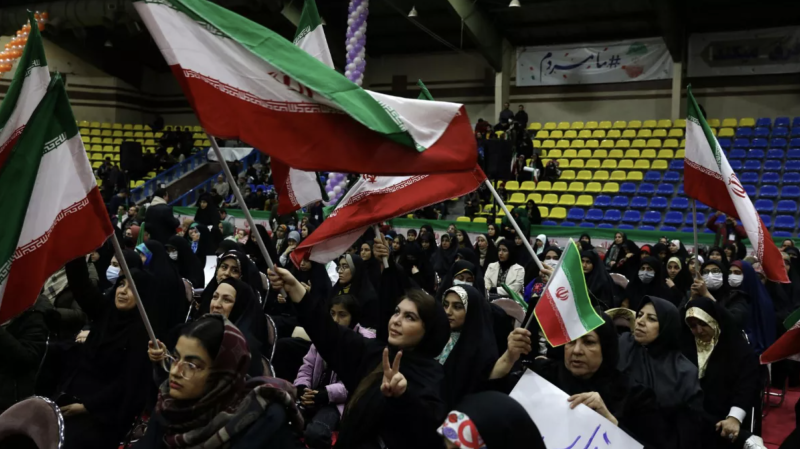
In Iran, the first elections since the nationwide anti-government protests of 2022 against the death in custody of Mahsa Amini are set to take place on Friday, March 1.
Friday’s polls will include single-round elections for members of Parliament and the Assembly of Experts, the 88-member body that is responsible for overseeing the appointment, dismissal and succession of Iran's Supreme Leader.
The polls will also serve as a critical test for the legitimacy of the Islamic Republic's regime, which has suffered due to widespread political repression and economic pain.
The elections are also being touted as the most restricted in decades, with a highly limited field of candidates. All candidates for elections must pass approval from the Guardian Council, a body where figures appointed by and loyal to the Supreme Leader hold significant sway. This stringent process has been a cause for concern, especially given past disqualifications of candidates critical of the government or supportive of reform. The disqualification of notable figures, including former President Hassan Rouhani, has further intensified internal divisions and contributed to a sense of political disillusionment among Iranians.
Approximately 61 million people out of Iran’s population of 85 million are eligible to vote in Friday’s elections, and nearly 59,000 polling stations have been set up, primarily in schools and mosques.
Ayatollah Ali Khamenei, the Supreme Leader, called for a unified national approach to the elections in an address on Wednesday. “Those who love their country, people and security should know that everyone will suffer from weak elections,” Khamenei said.
Analysts suggest that the regime is unwilling to tolerate any risks in the succession process; consequently, individuals with dissenting views from the ruling hardliners will be barred from the Assembly of Experts.
As the election approaches, unusual scenes of public enthusiasm, like supporters dancing at campaign events, are circulating on social media. This contrasts with the typically restrained atmosphere, suggesting an official effort to boost voter morale. Additionally, there's a surprising sign of tolerance towards women voters not wearing the Islamic headscarf, a move seen by some as an attempt to encourage participation.
The Guardian Council spokesperson, Hadi Tahan Nazif, clarified that voting rights are not denied by law to women without hijabs. However, some critics argue that these gestures are part of an attempt to secure votes amid a backdrop of economic challenges and dissatisfaction.
Economic concerns loom large in these elections, with inflation, rising housing costs, reduced fuel quotas, and increased internet service prices affecting Iranians. The economic difficulties, exacerbated by American sanctions since 2018, have led to widespread discontent, reflecting negatively on the government's performance.
The election climate has also been marred by the recent outlawing of virtual private networks (VPNs), drawing public criticism. In addition to candidate restrictions, this move further limits access to information, raising concerns about the fairness of the electoral process.
The disqualification of numerous pro-reform candidates has fueled divisions and reluctance among voters. Reformists, traditionally active in encouraging voter participation, are facing internal disagreements, with some factions endorsing participation despite acknowledging the elections' lack of fairness.
Projections indicate a historically low turnout, with official polls suggesting a national turnout of around 38.5 percent. The disenchantment among Iranians is evident, as citizens perceive these elections as lacking significance and having little to no effect in bringing about meaningful change.
